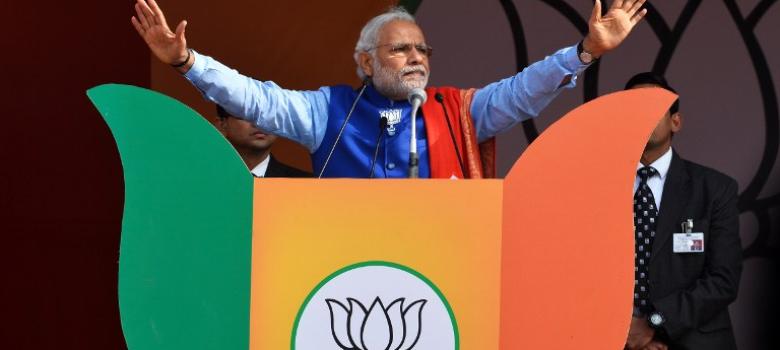1. Wholesale inflation fell even further in India in August, coming in at (-)4.95% from (-)4.05% the month before prompting predictable calls for rate cuts.
2. The United Nations adopted text-based negotiations for reform of the Security Council, a key milestone on India's path to becoming a permanent member of the decision-making body.
3. A World Bank report finds Gujarat is the best state for conducting business in India, followed by Andhra Pradesh and, surprisingly, Jharkhand.
The Big Story: HAM-handed
The National Democratic Alliance has a seat-sharing formula to work with in Bihar, after several days of negotiations prompted primarily by former Chief Minister Jitan Ram Manjhi's insistence on getting at least as many seats as the Rashtriya Lok Samata Party. It didn't end up doing so on paper, but de-facto: Manjhi's Hindustan Awam Morcha will contest 20 seats to the RLSP's 23, but a few of Manjhi's candidates will also be able to contest on the BJP symbol.
This allows the BJP itself to contest two-thirds of the seats in 243-seat state assembly, giving it an easier route to a single-party majority if it so wishes, presuming of course that its candidates are wildly successful. Even if two-thirds is not achievable, a simple majority by the BJP alone, in the 120 seat range, could be a possibility.
There are murmurs of discontent from Upendra Khushwaha of the RLSP, but now that the formula has been announced more effort is being made to project this as a grand alliance of upper castes, Other Backward Classes and Mahadalits, a strong coalition that is clearly the frontrunner in the race. Presuming that the specific seat selection doesn't turn into more bickering for the NDA, this could prove to be a formidable platform not just for this election but for some time to come in Bihar.
The Big Scroll: Scroll.in on the day's biggest story
Anita Katyal asks whether will JD(U) and RJD get their caste arithmetic right, and Ajaz Ashraf asks why Narendra Modi is not seen as an OBC leader, unlike Nitish Kumar and Lalu Prasad Yadav?
Politicking & Policying
1. A Gujarati channel that criticised Prime Minister Narendra Modi for opportunism has been sent a notice by the Information & Broadcasting ministry claiming it is a "deliberate attempt to malign his reputation".
2. Sri Lankan Prime Minister Ranil Wickremsinghe is in India to hold talks with Modi on various matters including the issue of fishermen being picked up in each others' waters.
3. Pressure has begun mounting on the chief minister on Jammu and Kashmir to promulgate an ordinance that would override a court-ordered beef ban in the state, ahead of Bakri Id when animal sacrifices are commonplace.
4. Women and Child Development Minister Maneka Gandhi has affirmed that "all violence is male-generated".
Punditry
1. There are many promises from Arun Jaitley's first budget alone that have been forgotten, writes Ashok V Desai in the Telegraph, saying the Prime Minister needs to act.
2. Ram Madhav attempts to defend the Rashtriya Swayamsevak Sangh's relations to the Bharatiya Janata Party in the Indian Express, saying a meeting of the two is just like a family reunion.
3. The Times of India finds it fit to let Devyani Khobragade write about the "inherent sexism" in the way femme fatales like Indrani Mukherjea are covered by the media.
Don't Miss
Ipsita Chakravarty writes about the bits of the curriculum that the Delhi government is axing to make life "easier" for students.
Is it perhaps a coincidence that both Anne Frank and Gulliver’s Travels are both stories of resistance to authority? Anne Frank’s diary, written while she was in hiding from one of the most murderous regimes in history, is a symbol of defiant hope. Jonathan Swift’s 18th-century satire shows the very nature of authority to be absurd, in kingdoms of little people, kingdoms of giants, countries governed by logic and reason, countries populated by tree-dwelling savages.










